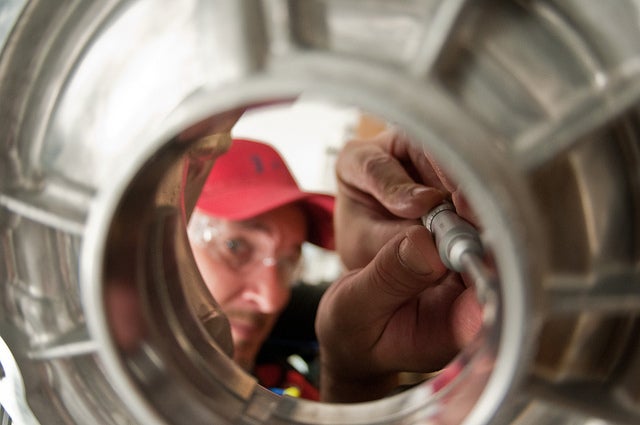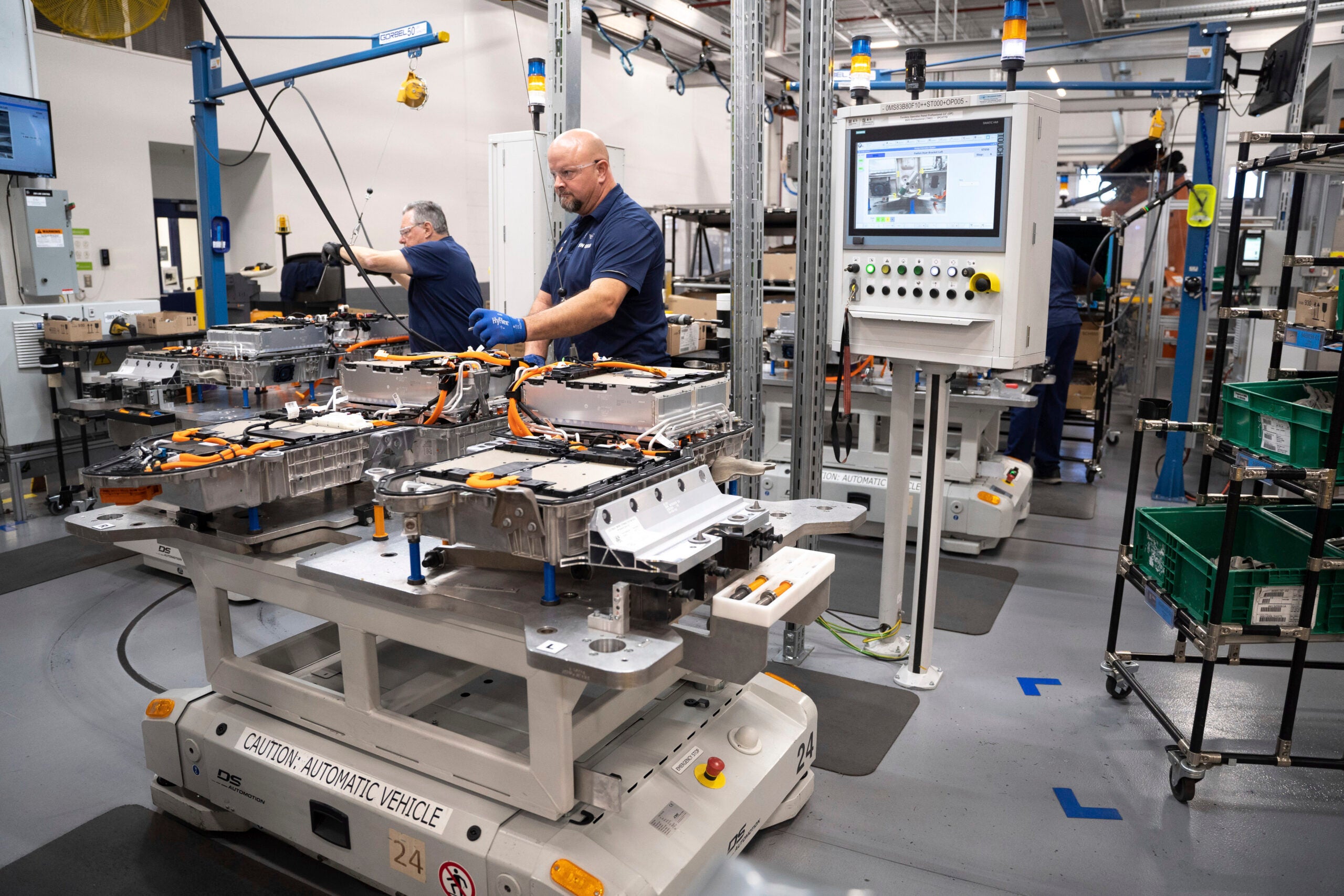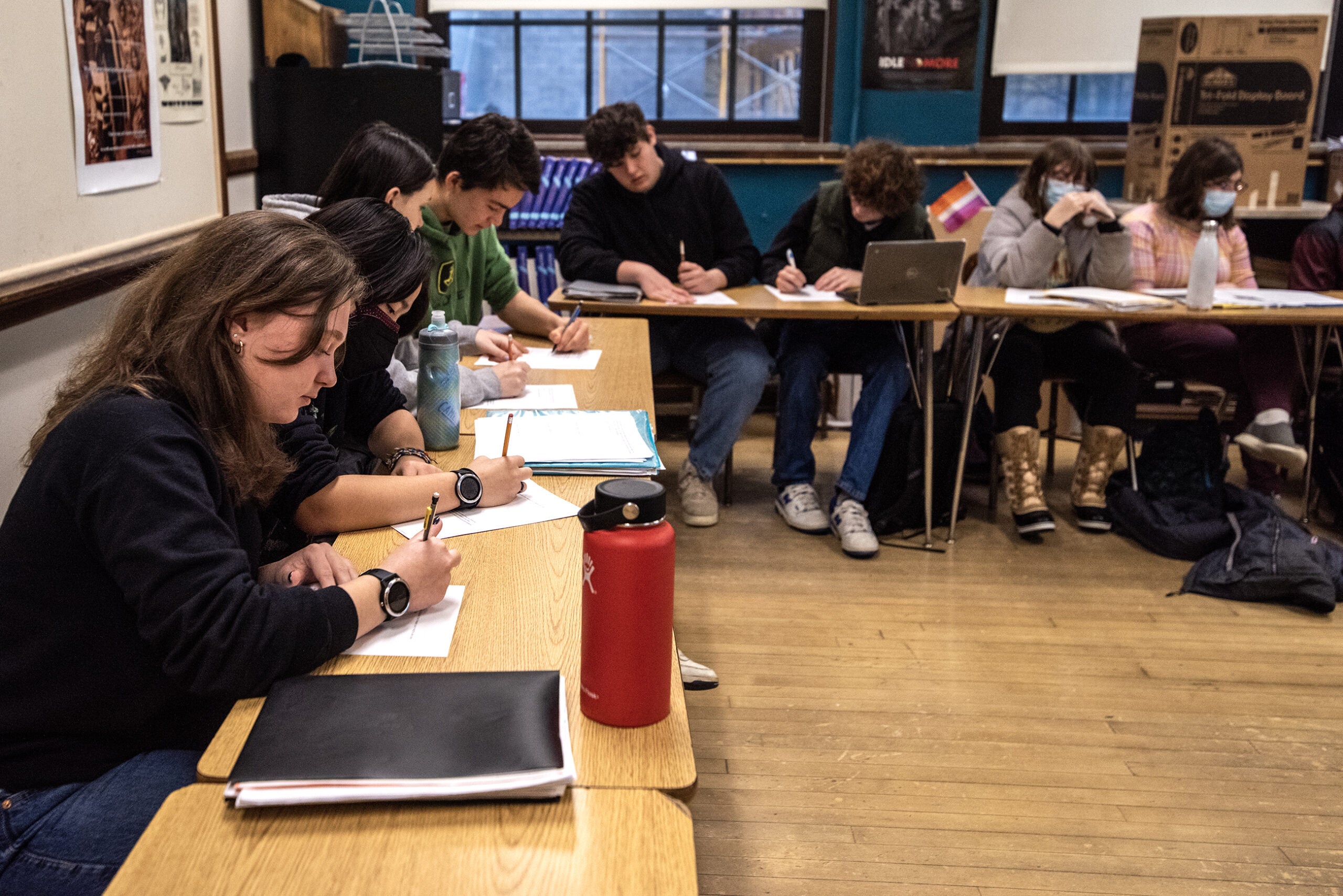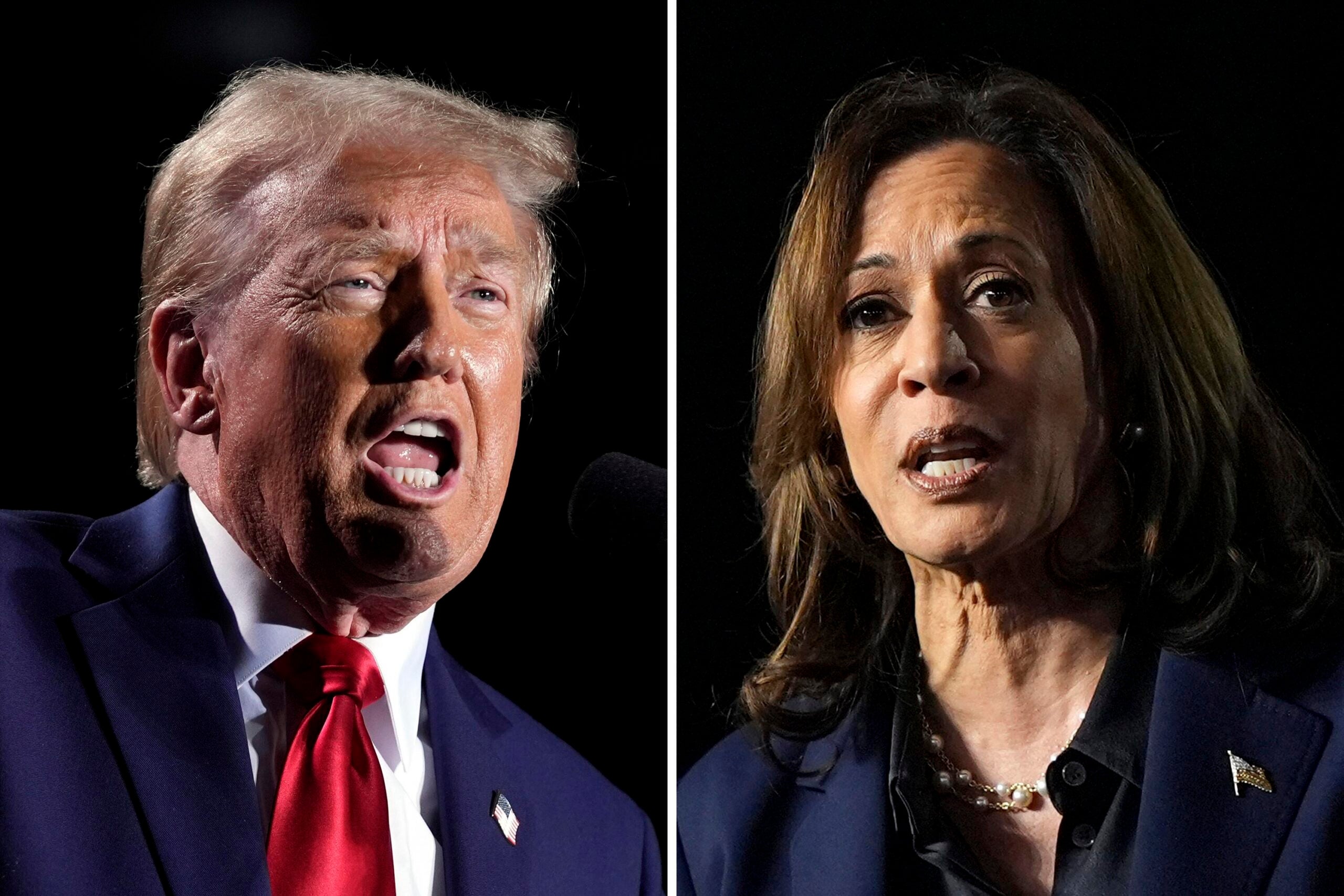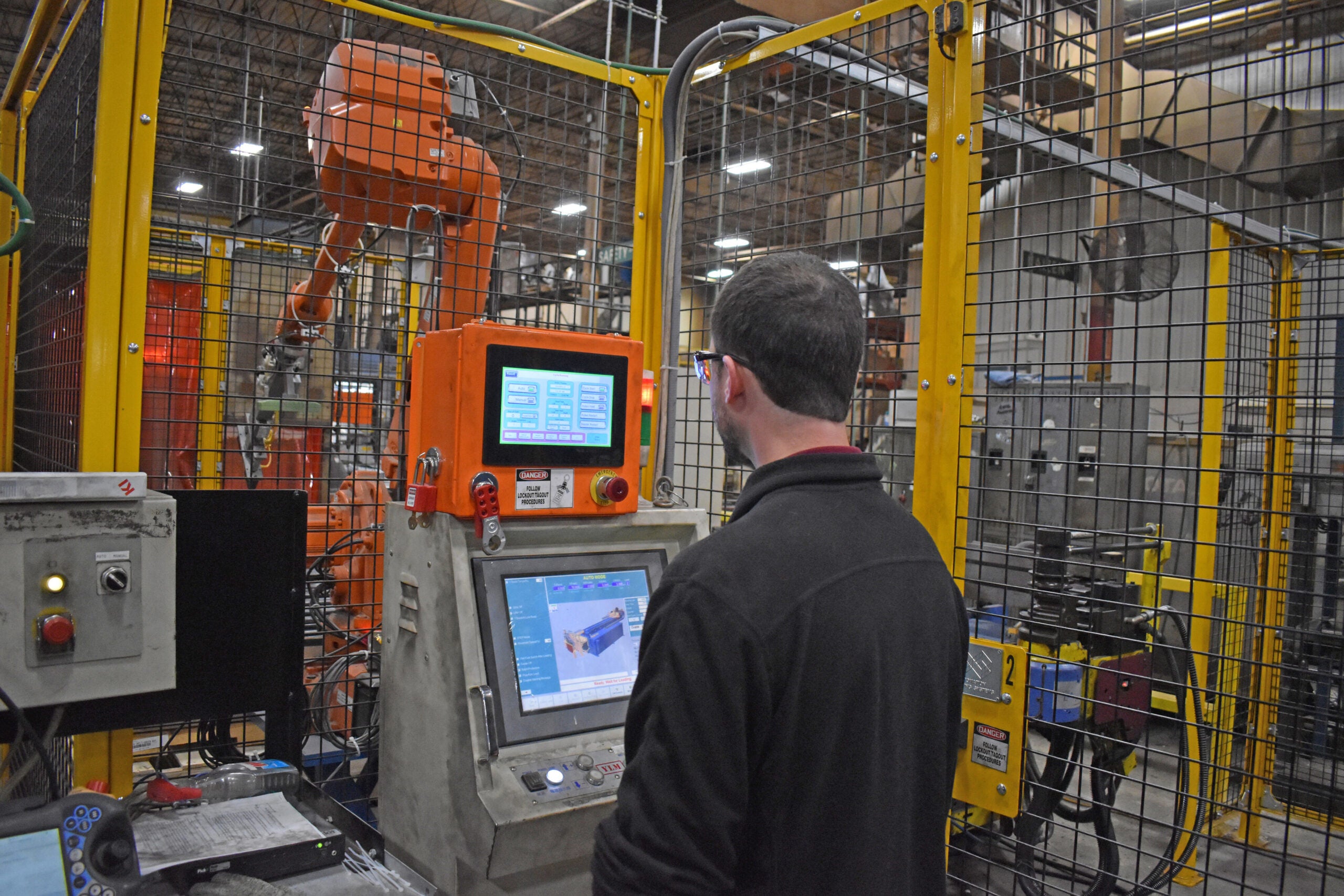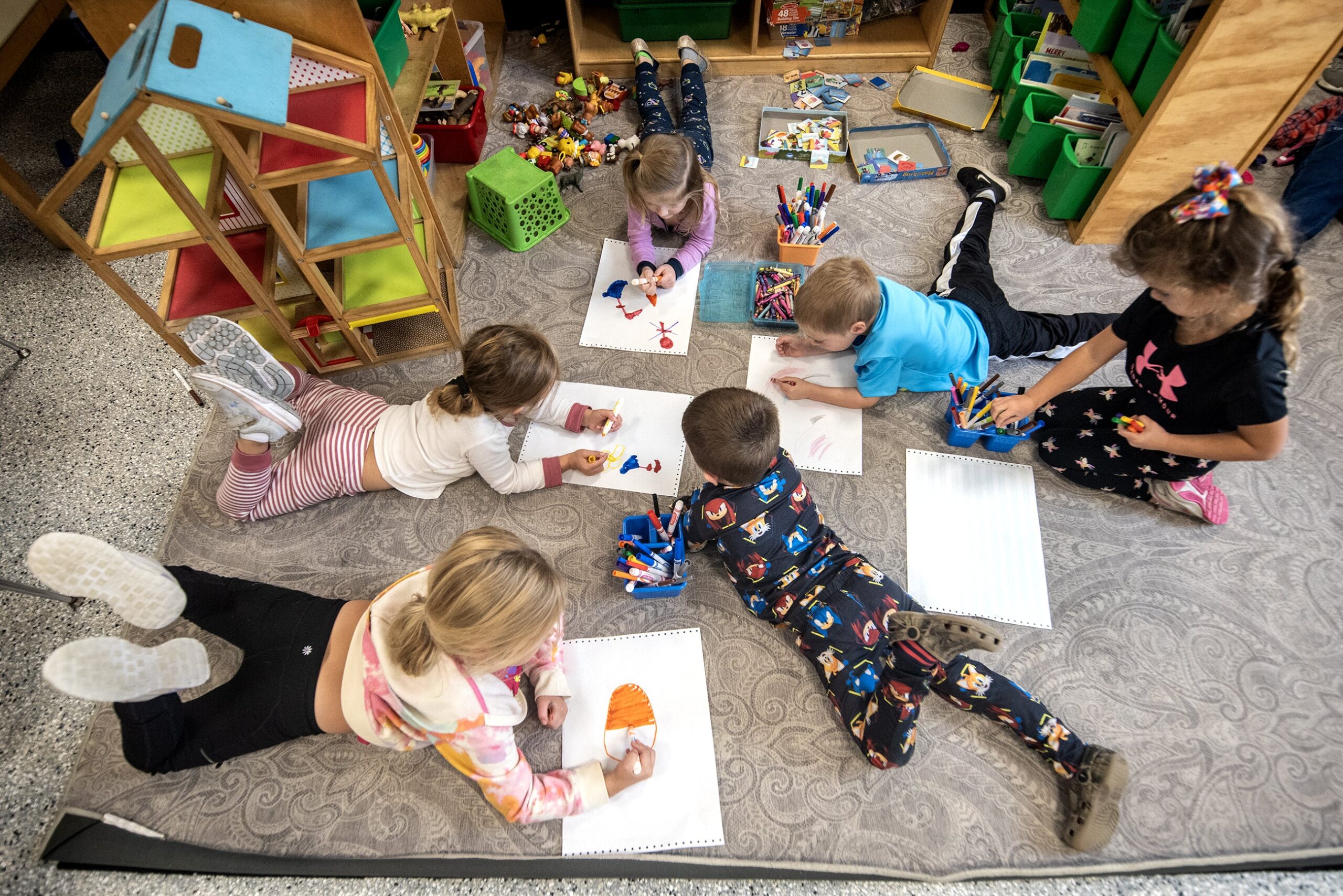The latest Wisconsin Survey seems to indicate that people remain gloomy about the condition of both the state and national economy.
Respondents to the spring survey — conducted by St. Norbert College and released by Wisconsin Public Radio on Wednesday — were asked to rate the state and national economies. About 44 percent said that the national economy is “not so good,” while 22 percent said it was “poor.” For the state’s economy, almost 50 percent said it was not so good, while 14 percent said it was poor.
In addition, nearly 40 percent of respondents in the survey said that the economy is the state’s most important problem.
Stay informed on the latest news
Sign up for WPR’s email newsletter.

Graphic by Jen Hadley/WPR
Marc Schaffer, an economics professor at St. Norbert College, said people’s perceptions on money often dip during presidential election years as candidates downplay the current economy and promise to make it better.
Nancy Wong, a professor with the School of Human Ecology at the University of Wisconsin-Madison, agrees.
“Since income inequality and economic outlook have pretty much dominated every single political debate, it is really not surprising that people feel that things are not going too well,” she said during an interview on Wisconsin Public Radio’s “Central Time.”
Survey respondents were more notably more optimistic about their own personal financial situations. A plurality of respondents said they are better off or the same financially as they were a year ago. Looking ahead, 43 percent of respondents said they would be better off than now next year, with 33 percent saying that they would be in the same financial boat.
Charts by John Wilson/WPR
Wong attributed the optimism about personal economic outlooks to who responded to the Wisconsin Survey. About 80 percent of respondents had some college or technical college training, and at least 50 percent of them had college or postgraduate degrees.
“They happen to be coming from, I would say, the more privileged group of people,” she said.
Perception of the economy is also tied to personal characteristics and background, said Wong. According to her research, men are more optimistic than women about the economy, and people with more education are also more upbeat about the economy.
The survey also touched on specific economic issues, with more than two-thirds of respondents saying they were in favor of raising taxes on the wealthy and large corporations to help reduce income inequality. According to Schaffer of St. Norbert College, it’s a sign of the middle class’s frustration with stagnant wages.
“Any gains we have largely had have been offset by rising health care premiums and things like that,” he said, adding that many in the middle class “don’t feel like they’re necessarily getting ahead.”
About 28 percent of respondents opposed raising taxes, and another 7 percent were not sure.
The survey polled more than 616 registered voters in Wisconsin over mobile and landline phones from April 12 to April 15. The margin of error was plus or minus 4 percent.
The survey was conducted by Wisconsin Public Radio, Wisconsin Public Television and the Strategic Research Institute at St. Norbert College.
Stay tuned to Wisconsin Public Radio and WPR.org for continuing coverage.
Credits: Jennifer Hadley/Wisconsin Public Television (infographic illustrations) and John K. Wilson (data visualizations).
Wisconsin Public Radio, © Copyright 2025, Board of Regents of the University of Wisconsin System and Wisconsin Educational Communications Board.
